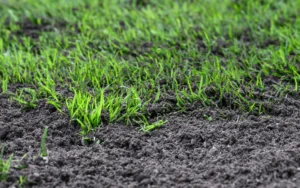
Keeping public furniture tidy and safe should not chew up your weekend or council budget. That is the appeal of aluminium benches. They handle sun, rain, and daily use with little fuss, and a simple routine keeps them looking presentable for years.
Why Aluminium Is Low Maintenance by Design
Before you plan a maintenance schedule, it helps to know why aluminium benches are so forgiving. Aluminium naturally forms a thin oxide layer that resists corrosion. Powder coating or anodising adds another protective barrier, so the surface shrugs off weather and grime.
The material is light yet rigid, which means fewer heavy fixings and less opportunity for movement that creates squeaks or loose joins. In short, you are dealing with a stable, non-rusting frame with a hard-wearing finish.

The Day-to-Day Reality: Wipe, Rinse, Inspect
Daily or weekly habits are simple. You do not need specialised products or complex steps. A light clean and a quick look over the hardware will keep things in shape.
- Rinse benches with fresh water to remove dust, sand, and leaf matter.
- Wipe with a soft cloth or sponge and a mild pH-neutral detergent.
- Rinse again, then let the bench air dry.
- Check for loose fasteners and tighten if needed.
For high-traffic sites like schools, transport hubs, and sports grounds, these steps are often enough to maintain a clean look and safe seating without delay.
What Actually Needs Cleaning, And How Often
Every site is different, but a simple cadence keeps costs predictable. Introduce a routine that fits your environment and adjust with the seasons.
- Seats and backrests, weekly: Mild detergent wash to remove body oils, sunscreen, and dirt.
- Frames and legs, fortnightly: Quick rinse to prevent build-up in corners and underneath slats.
- Underside and footings, monthly: Brush away cobwebs, soil, and leaf litter that hold moisture.
- Fasteners and brackets, quarterly: Inspect for tightness and signs of wear.
If your aluminium benches sit under trees or near the coast, a faster rinse cycle keeps salt and sap from building up.
Handling Common Stains Without Drama
Outdoor benches face the same few offenders. The right approach removes marks quickly without damaging the coating.
- Bird droppings: Rinse first. Soften with warm soapy water for a few minutes, then wipe. Avoid scrubbing with abrasives.
- Sunscreen and body oils: Use a pH-neutral detergent and a soft cloth. Rinse well to avoid streaks.
- Food and drink spills: Wipe promptly with warm soapy water. For sticky residues, a small amount of diluted isopropyl alcohol can help, followed by a rinse.
- Tree sap: Apply a microfibre cloth dampened with warm soapy water, hold it on the spot to loosen, then wipe. Repeat as needed.
- Graffiti on powder coat: Use a non-abrasive graffiti remover rated safe for powder-coated aluminium. Test on a hidden spot first, follow the directions, then rinse thoroughly.
Weather Resistance, Season by Season
Aluminium copes with Australia’s temperature swings, but a little attention at the right time of year prevents long-term wear.
- Summer: UV exposure can dull many materials. Powder-coated aluminium resists fading, and a regular wash keeps the finish bright by removing dust that traps heat.
- Wet season or winter rains: Make sure drainage around legs and footings is clear so water moves away from the bench. Rinsing after heavy rain removes mineral deposits.
- Coastal locations: Salt spray can cling to surfaces. A fresh-water rinse once a week, or more during onshore winds, prevents salt crusts from forming.
Fasteners, Joints, And Footings: Quick Inspection Points
The most common maintenance issue is not the aluminium itself, it is the hardware. A brief inspection routine prevents wobbles and squeaks.
- Check seat slats and backrest fixings for tightness.
- Look for movement at anchor points, especially on pavers and older concrete pads.
- Confirm that plastic or nylon isolation washers, if used, are intact to prevent metal-on-metal wear.
- Inspect end caps and edging to keep moisture and debris out of hollow sections.
Powder-Coated Finishes: Keep It Simple
Powder coating provides colour, protection, and a smooth surface that cleans easily. Treat it gently and it will stay sharp for years.
- Stick to pH-neutral detergents and soft cloths.
- Avoid scouring pads and harsh solvents that can dull the sheen.
- Remove stubborn marks with approved cleaners, then rinse.
- If you notice small chips, touch up promptly to seal the exposed spot and maintain a uniform look.
Aluminium Benches Versus Timber and Steel: Upkeep in Practice
It helps to picture the alternative. Timber benches often need periodic sanding, oiling, or sealing to keep moisture out and prevent splinters. Steel frames can be robust, but uncoated or chipped coatings may rust, which soon becomes an eyesore and a structural issue. Aluminium benches avoid routine recoating, resist corrosion, and stay neat with basic washing. Over a multi-year period, this translates to fewer maintenance hours and less downtime.
Longevity, Warranty, And Real-World Lifespan
Well-built aluminium benches with quality powder coat or anodising have long service lives. The frame does not rust, the finish is durable, and components are easily replaceable. Keep a small box of spare end caps and the right driver bits for your fixings, and you can perform most minor fixes on the spot. With basic care, many sites see a decade or more of reliable use before any major refurbishment is needed.
Safety And Accessibility: Cleanliness That Protects Users
Maintenance is not just about appearance. Clean benches reduce slip risks from spills or sap, and tight fixings prevent pinch points. For sites serving children, older adults, or people with mobility challenges, smooth edges and consistent seat heights matter. A quick wipe and a routine hardware check make aluminium benches safer and more comfortable without extra labour.
Common Mistakes to Avoid
Even low-maintenance furniture can suffer from heavy-handed cleaning or neglect. Steering clear of these errors saves time and money.
- Using abrasive pads that scratch powder coat.
- Applying harsh solvents that soften the finish.
- Neglecting to rinse cleaners, leaving residue that attracts dust.
- Forgetting to check anchors, which can loosen on pavers or shifting ground.
- Allowing soil or mulch to build up against legs, trapping moisture and staining.
A Simple Maintenance Schedule You Can Stick To
A clear list helps teams stay consistent. Adjust timing to match usage and exposure.
- Weekly: Rinse and wipe with mild detergent, quick visual check for damage.
- Monthly: Brush out underside and footings, confirm all fixings are snug.
- Quarterly: Full inspection, test for movement, clean out drainage around pads, check end caps and isolation washers.
- After events or storms: Spot clean spills, rinse salt or dust, verify anchors and stability.
Print the schedule, assign owners, and note any issues so the next round is faster.

Repair Or Replace: Knowing The Line
Most issues with aluminium benches are easy to fix on site. Tighten fixings, replace an end cap, or touch up a chip. Consider replacement when the frame is significantly dented, when multiple components are missing or mismatched, or when upgrading to meet a new accessibility standard. Because aluminium benches are modular, you can often refresh a run of seating gradually rather than all at once.
The Bottom Line: Easy Care, Reliable Results
For councils, schools, builders, and facility managers, aluminium benches deliver a tidy balance of durability and simplicity. The routine is straightforward, the tools are basic, and the results are consistent even in harsh weather.
With a rinse, a gentle clean, and periodic checks on fixings and footings, aluminium benches stay presentable and safe year after year. If you plan your buy with finish quality and hardware in mind, you will spend more time using your outdoor spaces and less time maintaining them.




